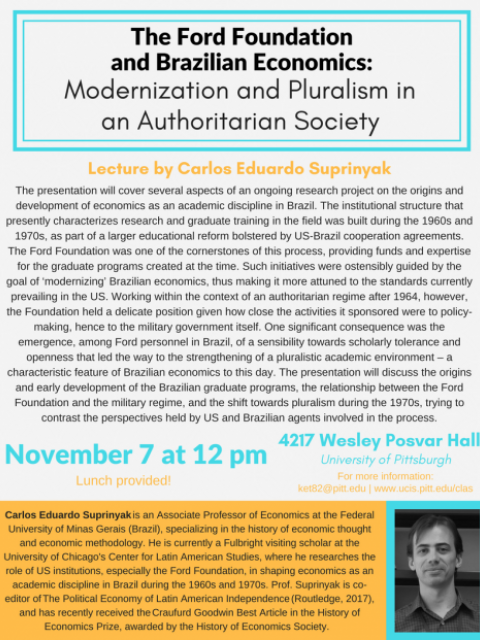The presentation will cover several aspects of an ongoing research project on the origins and development of economics as an academic discipline in Brazil. The institutional structure that presently characterizes research and graduate training in the field was built during the 1960s and 1970s, as part of a larger educational reform bolstered by US-Brazil cooperation agreements. The Ford Foundation was one of the cornerstones of this process, providing funds and expertise for the graduate programs created at the time. Such initiatives were ostensibly guided by the goal of ‘modernizing’ Brazilian economics, thus making it more attuned to the standards currently prevailing in the US. Working within the context of an authoritarian regime after 1964, however, the Foundation held a delicate position given how close the activities it sponsored were to policymaking, hence to the military government itself. One significant consequence was the emergence, among Ford personnel in Brazil, of a sensibility towards scholarly tolerance and openness that led the way to the strengthening of a pluralistic academic environment – a characteristic feature of Brazilian economics to this day. The presentation will discuss the origins and early development of the Brazilian graduate programs, the relationship between the Ford Foundation and the military regime, and the shift towards pluralism during the 1970s, trying to contrast the perspectives held by US and Brazilian agents involved in the process.
Full Details
Tuesday, November 7
The Ford Foundation and Brazilian Economics
Modernization and Pluralism in an Authoritarian Society

Time:
12:00 pm
Presenter:
Carlos Eduardo Suprinyak
Location:
4217 Wesley Posvar Hall
Sponsored by:
Center for Latin American Studies
Contact:
Kelsey Trimm
Contact Email:
ket82@pitt.edu

